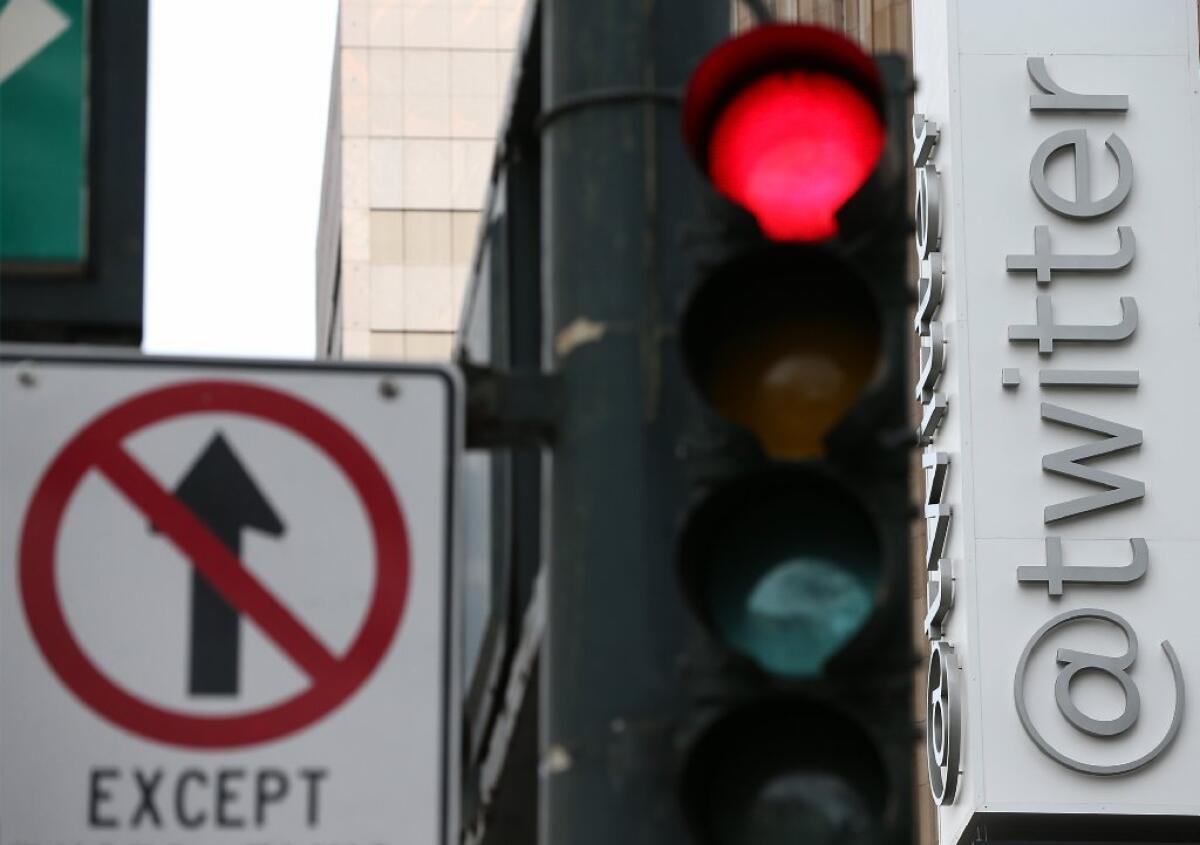Twitter may resort to legal action to disclose U.S. data requests

- Share via
SAN FRANCISCO -- Twitter is hinting that it will file a lawsuit if it is not allowed to release far more detailed information about requests for information about users it receives from the U.S. government.
Twitter is “considering legal options” on 1st Amendment grounds, the company said in a blog post Thursday.
Twitter has been pressing the Justice Department to be permitted to release specifics on the number and the type of requests it receives.
Facebook, Google, LinkedIn and Microsoft recently reached an agreement with federal officials to disclose broad details about the data requests that they have been secretly complying with under national security orders.
Twitter was not party to that agreement, and company officials do not think the agreement went far enough. The new rules still do not allow the companies to reveal exactly what information is collected or even how much is turned over.
Under the agreement, the companies can disclose rough approximations of how many customer accounts were targeted under national security orders. The numbers can only be disclosed for six-month periods in ranges of 250 or 1,000, and only six months after they were reported to the government.
The companies sued the Justice Department after leaked documents from former National Security Agency consultant Edward Snowden exposed that U.S. tech companies had been turning over user data in a secret surveillance program. That program did not include Twitter, but the company has been a vocal critic of the surveillance program.
Tech companies want to be able to reassure customers that the number of accounts subject to national security data demands is small. But Twitter says the ranges are still too broad.
“For the disclosure of national security requests to be meaningful to our users, it must be within a range that provides sufficient precision to be meaningful,” Jeremy Kessel, Twitter’s manager for global legal policy, wrote in a blog post. “Allowing Twitter, or any other similarly situated company, to only disclose national security requests within an overly broad range seriously undermines the objective of transparency.”
Twitter’s most recent transparency report shows that government requests for information about users continued to grow in the second half of last year. Requests from the U.S. made up nearly 60% of requests.
“We want to disclose information with greater granularity,” a Twitter spokesman said. “We feel that’s within our 1st Amendment right.”
Twitter has a track record of championing the privacy of users and taking on 1st Amendment fights. It challenged the Justice Department in its search for WikiLeaks supporters who communicated on Twitter. It also fought a court order to get information on an Occupy Wall Street protester.
ALSO:
Twitter stock tanks on weak growth numbers
Twitter’s first earnings report disappoints investors
Internet firms allowed to disclose details of U.S. data requests






